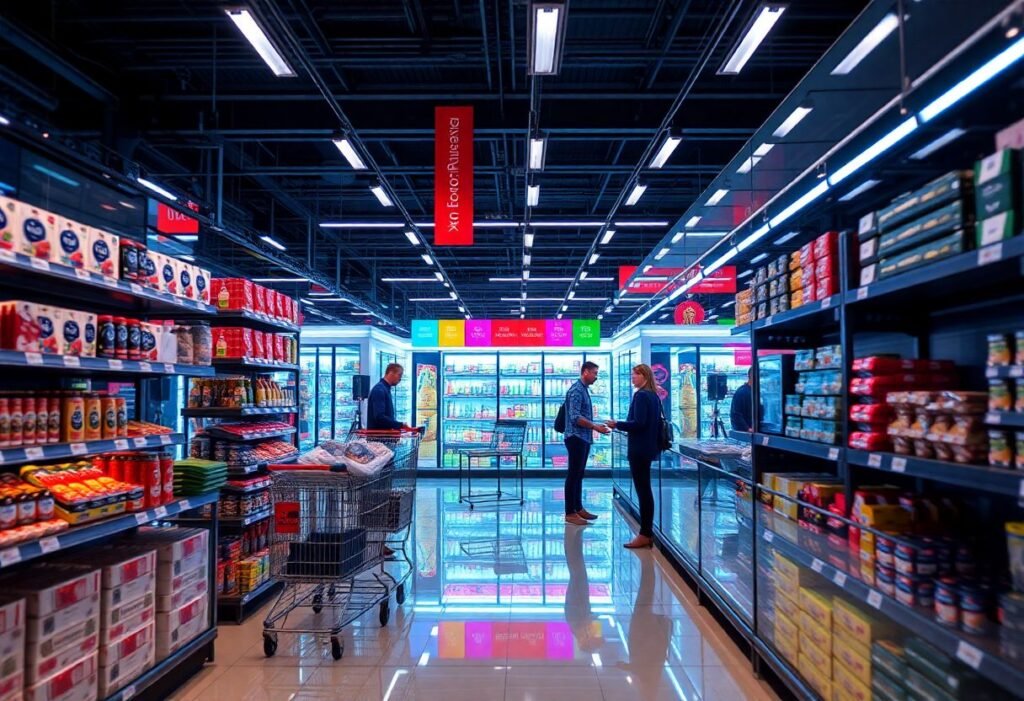Automation is redefining the landscape of the retail industry, allowing businesses to streamline operations and enhance customer experiences. Embracing innovation through automation not only improves efficiency but also drives costs down, making retail more competitive in today’s fast-paced market.
Enhancing Customer Experience through Automation
The adoption of automation technologies is revolutionizing the way retailers interact with customers. Automated systems can analyze consumer data in real-time, enabling personalized shopping experiences. Customers appreciate the ease of automated checkout systems, which significantly reduce waiting times. Furthermore, chatbots created with artificial intelligence are available 24/7, providing instant responses to customer inquiries, thus enhancing satisfaction and loyalty. As more retailers adopt these **innovative solutions**, they can expect a notable increase in **customer engagement** and sales conversions.
Streamlining Supply Chain Management
Automation has a remarkable impact on supply chain management, allowing retailers to optimize inventory levels and reduce costs. By integrating **automation tools**, such as robotics and smart algorithms, retailers can enhance forecasting accuracy, ensuring they stock the right products at the right time. This not only minimizes waste but also prevents stockouts, leading to improved **operational efficiency**. Additionally, automated data collection enables retailers to gain insights into customer preferences and trends, facilitating better decision-making processes.
Reducing Operational Costs
One of the most significant advantages of automation in retail is its ability to reduce operational costs. Automated systems minimize human error, streamline processes, and enhance productivity. For example, tasks like inventory management and order fulfillment can be managed with minimal human intervention. By freeing the workforce from repetitive tasks, retailers can reallocate human resources to more complex operations that require **creativity and strategic thinking**. Consequently, the overall cost of operations decreases, allowing for greater profit margins.
Adopting Smart Technologies
The integration of **smart technologies**, such as the Internet of Things (IoT), is enhancing automation efforts in retail. These technologies allow for better tracking of products throughout the supply chain, improving efficiency and transparency. Smart shelves equipped with sensors can alert staff when stock is low, enabling proactive management of inventory. Moreover, data collected from various sources helps retailers forecast trends and consumer behaviors more accurately, leading to effective marketing strategies that resonate with shoppers.
The Future of Retail Through Automation
Looking forward, the transformation of the retail industry driven by automation is just beginning. The continuous evolution of artificial intelligence and machine learning technologies will unlock new possibilities, allowing for even more sophisticated automated solutions. Retailers that invest in these innovations will likely thrive, as they cater to the **future needs** of consumers, emphasizing convenience and personalization. As the industry adapts, it becomes essential for businesses to stay ahead of the curve by continually innovating.
Challenges in Automation Implementation
Despite its benefits, the integration of automation in retail does not come without challenges. Retailers face hurdles such as the high upfront costs of technology acquisition and integration, along with the need for skilled labor to manage these systems. Resistance from employees who fear job displacement can also pose significant hurdles. Addressing these issues requires clear communication and training initiatives to help staff adjust to their evolving roles in an automated environment. Ultimately, successful automation necessitates a thoughtful approach that balances technology with human ingenuity.
Disclaimer: The content provided here is for informational purposes only and does not constitute professional advice.





















